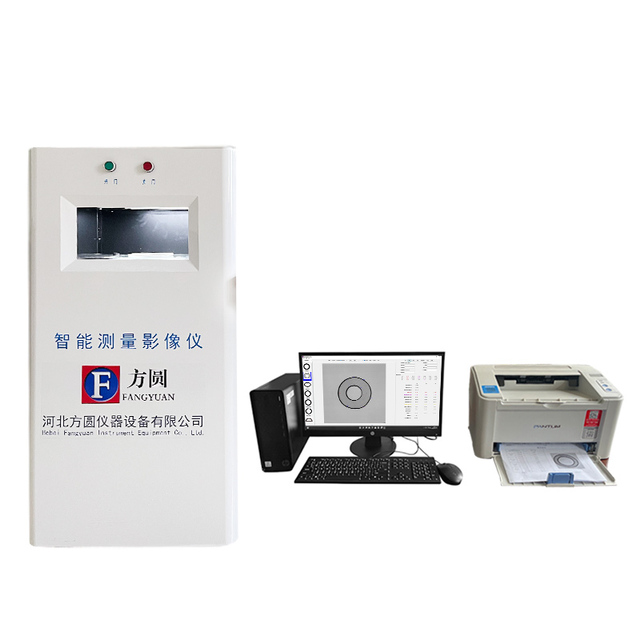Top Manufacturers of Universal Testing Machines for Precision Material Testing Solutions
Universal Testing Machine Manufacturers An Overview
Universal testing machines (UTMs) are crucial in various industries for materials testing, providing vital data on mechanical properties and behavior under different loads. These machines are utilized in sectors ranging from manufacturing to research and development, where understanding the tensile, compressive, and flexural strength of materials is essential. This article delves into the landscape of universal testing machine manufacturers, exploring their significance, advancements, and the factors that businesses should consider when selecting a UTM.
Significance of Universal Testing Machines
At the core of material science, UTMs play a pivotal role in ensuring the reliability and safety of products. They measure material properties such as yield strength, elongation, and toughness, which are critical in determining a material's performance in real-world applications. Industries like construction, automotive, aerospace, and electronics depend heavily on these machines to guarantee that materials meet regulatory standards and specifications.
Moreover, UTMs facilitate quality control processes, helping manufacturers to identify flaws in materials before they lead to failure in end-use applications. By understanding the mechanical properties of materials, companies can make informed decisions about material selection, process optimization, and product design.
Innovations in Universal Testing Machines
The field of materials testing has witnessed significant advancements over the years, significantly driven by innovations in universal testing machines. Modern UTMs are equipped with advanced features such as computerized controls, high-precision sensors, and data acquisition systems, allowing for more accurate and reliable testing results. These features enable users to conduct a variety of tests, including tensile, compressive, fatigue, and impact tests, all within a single machine.
Furthermore, the integration of software solutions has revolutionized the way test data is collected and analyzed. Advanced software packages allow for real-time monitoring, automated data recording, and detailed reporting, making it easier for engineers and quality assurance professionals to interpret results effectively.
The push towards automation and Industry 4.0 has led to the development of smart UTMs that can be integrated into broader manufacturing systems. With IoT capabilities, these machines can communicate with other devices, enabling a seamless flow of information across the production line, thereby enhancing efficiency and productivity.
universal testing machine manufacturers

Choosing the Right Manufacturer
When selecting a UTM manufacturer, there are several key factors to consider
1. Reputation and Reliability Established manufacturers with a proven track record in the industry are often more reliable. Researching customer reviews and case studies can provide insights into a company's performance and service quality.
2. Customization Options Different industries may have specific testing requirements. Manufacturers that offer customizable solutions can better cater to the unique needs of a business, whether through adjustable machine configurations, additional accessories, or specialized software.
3. Technical Support and Service Post-purchase support is critical for maintaining the operational efficiency of a UTM. Choosing a manufacturer that provides robust technical support, training, and maintenance services can help organizations minimize downtime and extend the lifespan of their equipment.
4. Compliance and Certification Ensure that the manufacturer’s machines comply with relevant industry standards and certifications. This compliance is essential for ensuring accuracy in testing and for maintaining quality assurance.
5. Cost and Value While price is an important factor, it should not be the sole consideration. Evaluate the overall value offered by the manufacturer, which includes equipment quality, durability, warranty terms, and after-sales service.
Conclusion
Universal testing machines are indispensable tools in the realm of materials testing, and the manufacturers behind them play a significant role in ensuring material quality and performance. With continuous advancements shaping the industry, manufacturers are evolving to meet the changing needs of various sectors. When selecting a UTM manufacturer, organizations must assess multiple factors to ensure they choose a partner that will support their testing needs effectively. Investing in the right equipment not only enhances product reliability but also drives technological progress and innovation across industries.
-
Why the Conductor Resistance Constant Temperature Measurement Machine Redefines Precision
NewsJun.20,2025
-
Reliable Testing Starts Here: Why the High Insulation Resistance Measuring Instrument Is a Must-Have
NewsJun.20,2025
-
Flexible Cable Flexing Test Equipment: The Precision Standard for Cable Durability and Performance Testing
NewsJun.20,2025
-
Digital Measurement Projector: Precision Visualization for Modern Manufacturing
NewsJun.20,2025
-
Computer Control Electronic Tensile Tester: Precision and Power for the Modern Metal Industry
NewsJun.20,2025
-
Cable Spark Tester: Your Ultimate Insulation Assurance for Wire and Cable Testing
NewsJun.20,2025
 Copyright © 2025 Hebei Fangyuan Instrument & Equipment Co.,Ltd. All Rights Reserved. Sitemap | Privacy Policy
Copyright © 2025 Hebei Fangyuan Instrument & Equipment Co.,Ltd. All Rights Reserved. Sitemap | Privacy Policy
